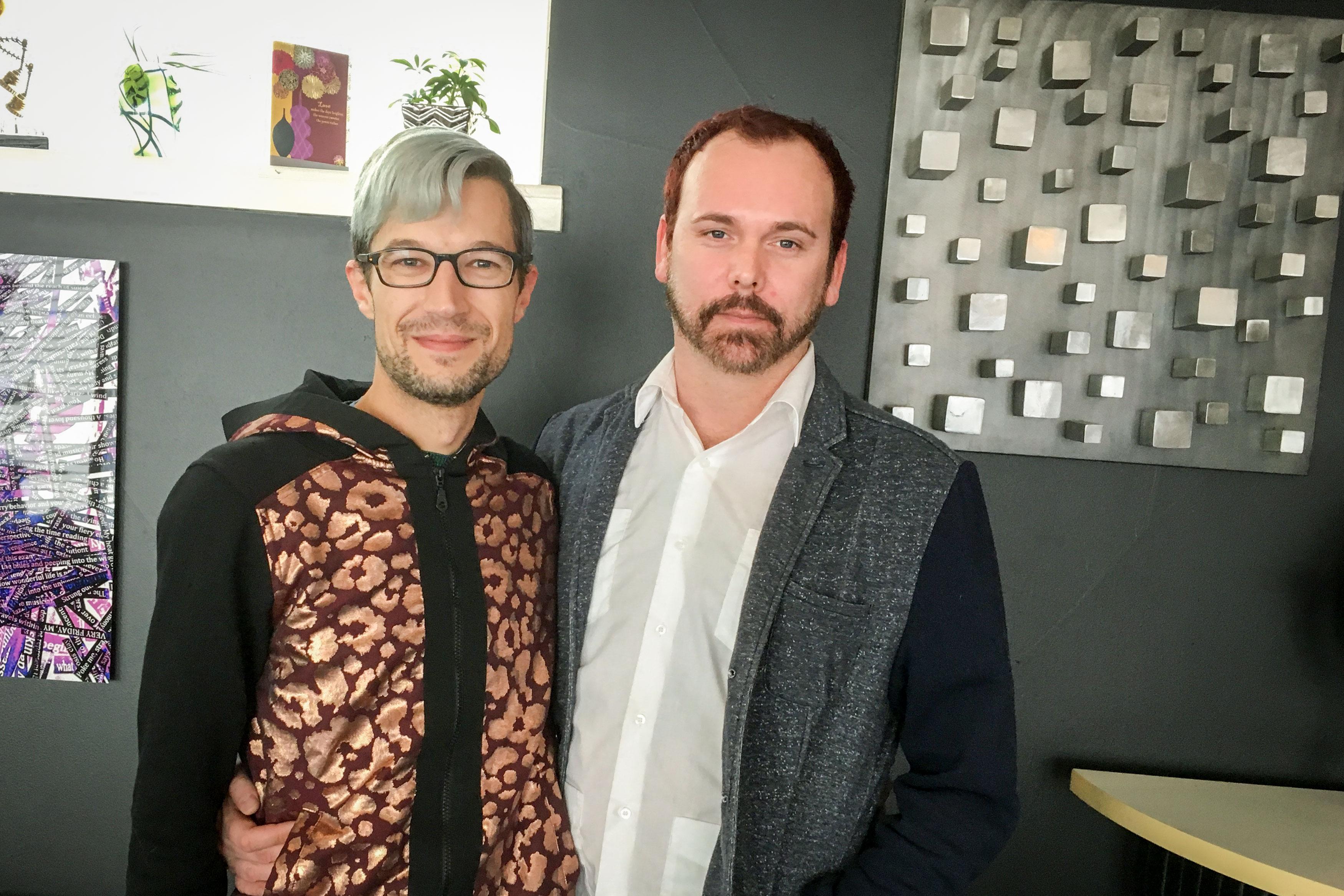

A five-year legal battle about whether a Lakewood baker was within his First Amendment rights to refuse to bake a wedding cake for a Denver gay couple has its day at the Supreme Court Tuesday.
What happened when Charlie Craig and David Mullins met baker Jack Phillips in the summer of 2012 isn’t much in dispute. The couple went to Phillips’ Masterpiece Cakeshop with Craig’s mother to order a wedding cake for a Colorado party to celebrate their marriage in Massachusetts.
When Phillips learned he would be making a cake to celebrate a gay marriage, he declined the business and said he would sell them off-the-counter products, cookies or brownies, instead. He said it was against his Christian belief that marriage is only between men and women.
“I serve all who walk through my doors, people from all walks of life,” Phillips said. “Like many other creative professionals though, I do not create custom designs that conflict with my conscience. That includes a whole variety of things. I don’t create cakes that celebrate Halloween … It’s never about the person making the request, it’s about the message communicated on the cake.”

Mullins and Craig eventually filed a complaint with the Colorado Civil Rights Commission, which ruled that Phillips’ bakery illegally discriminated against them by refusing to sell a wedding cake for a same-sex ceremony.
In 2015, the Colorado Court of Appeals upheld the decision and the Colorado Supreme Court later denied review. The Alliance for Defending Freedom, a conservative legal group representing Phillips in the case, appealed to the Supreme Court in July of 2016. The nation’s high court eventually agreed to hear the case, granting the petition in June 2017.
“It’s emotional and probably will continue to be so up until the day it’s argued,” Mullins said. “The Supreme Court is something you read about in textbooks in high school, it’s not a place where you yourself go to have a case argued on your behalf. It’s an overwhelming feeling.”
At issue is the tension between Colorado’s discrimination laws and freedom of expression and religion.
Colorado state statute prohibits businesses from discriminating against customers based on race, creed, color, national origin, ancestry, sex, marital status, disability and — as of 2008 — sexual orientation. The First Amendment guarantees freedom of religion and expression and the Supreme Court has ruled before that the government can’t compel speech or expression.
Phillips attorneys argue that because he didn’t throw the couple out of the store outright and refuse to serve them, he did not violate public accommodation laws that ban discrimination.
“Regardless of what your position is on marriage, no one should be forced to take the opposite position,” said David Cortman, senior counsel for the Alliance for Defending Freedom. “The issue is not about where you stand on marriage, but the issue is do we want the government to compel us to take a stand on marriage, not on just this, but on anything.”

Mullins and Craig’s attorneys and advocates argue that if the high court overturns the Colorado Civil Rights Commission’s ruling, it could open the doors for further discrimination among protected classes that include women and people of color.
“The tough part in the Masterpiece Cakeshop case is it’s tough to see a stopping point,” said Scott Moss, a constitutional law professor at the University of Colorado. “The Alliance Defending Freedom’s version of the Constitution is that virtually any business can refuse to sell to a gay person or a couple on a premise that this is supporting them in their gay home or lifestyle celebration or events or family life.”
Moss points out that the Supreme Court has rejected the religious exemption from anti-discrimination laws before. In 1968, justices heard a case about a barbecue restaurant that refused to serve an African-American. The owner of the restaurant cited his religion as reason for the discrimination. Courts ruled it was a violation of the 1964 Civil Rights Act.
National — even international — eyes are on this Colorado case.
Both the baker and the couple have conducted dozens of interviews over several years. Phillips has stopped making wedding cakes for now and says business took a hit. Mullins and Craig have celebrated several anniversaries since their 2012 wedding.

“We declined to create one custom cake to celebrate a wedding ceremony that would directly violate my faith’s teachings … and it’s resulted in five years of court battle, 40 percent of my business, losing half my staff and even death threats,” Phillips said recently at a rally celebrating him at Colorado Christian University. “It’s very sad to me.”
In a recent interview at their home, the couple say they are trying to stay calm ahead of Tuesday’s oral arguments.
“You don’t really get to choose these things, they choose you,” Mullins said. “And we’re as ready as we’re going to be.”
Craig added: “Do we want our marriage defined by like political activism? Probably not, we want it to be for our love.”








